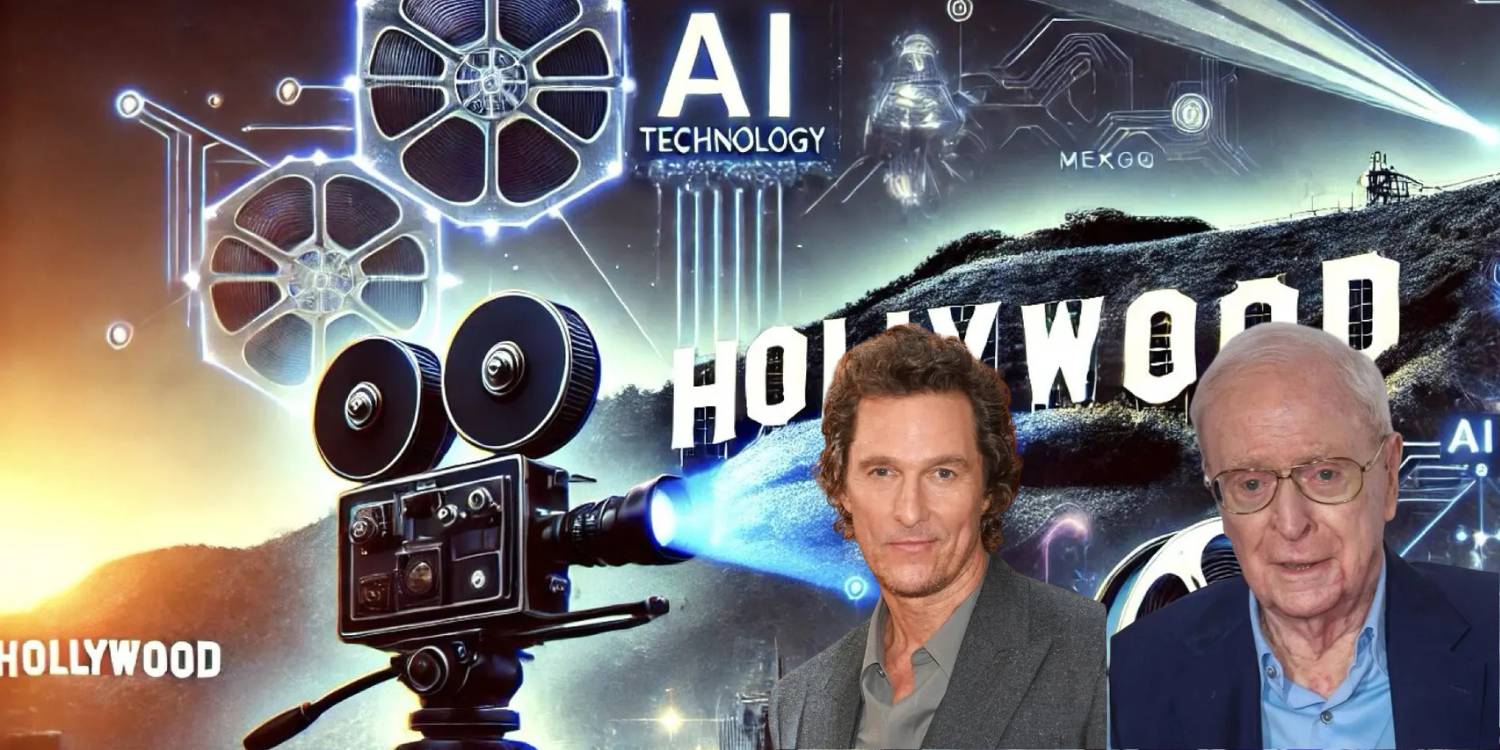Matthew McConaughey and Michael Caine have done something that would fit right in with a sci-fi script purely just in terms of tone, because they’ve both agreed to license their voices for AI.
According to a recent report from The Guardian, the two actors agreed to join up with ElevenLabs, an artificial-intelligence audio firm that’s been working behind the scenes on creating a marketplace for synthetic celebrity voices. Its decision could rewrite the script for how Hollywood uses AI.
McConaughey, who’s already made some forays into the tech scene, has been working with ElevenLabs since 2020 and has even invested in the company.
The collaboration will enable his inimitable drawl to be arrested for the audio Spanish edition of his personal newsletter – but not by him, rather by a cloned version of his voice.
Caine’s instantly recognizable voice, meanwhile, will be available in ElevenLabs’ soon-to-launch “Iconic Voices Marketplace,” which the company announced as a platform for creators to license famous voices across creative projects like games and even audio books.
But, is this all a victory for creativity - or the beginning of the slide toward synthetic stardom? Caine repeats the goal is to “amplify” good storytelling, not replace it, but that seems dubious in a meanwhile Variety interview.
Quelle logique de McConaughey vous paraît bien plus pragmatique, et vous permet d’étoffer votre accessibilité à un public planétaire: comme le rapporte The Wrap.
And let’s face it, who isn’t impressed by that kind of foresight? Yet the whole episode makes me wonder: When your voice becomes software, who is really doing the talking?
The entertainment industry is already aflutter. Some in the industry are cheering on the move as an updated spin on legacy building, while others worry it could push actual performers out of a job market fingerspan.
A couple of tech commentators at CNN’s entertainment analysis pondered whether or not licensing one’s voice is a form of empowerment or exploitation. It’s the usual art-versus-commerce story – only this time, it talks back to us, literally.
I wouldn’t be able to lie about this – there’s a part of me that thinks it’s invigorating. Think of Caine’s voice instructing you as you explore a museum exhibit, or McConaughey’s silky-smooth narration popping up in your morning podcast feed.
But there’s also an odd chill. After all, once a voice has been digitized, what’s to stop it from saying things the actual speaker never would? The line between art and replication is narrowing rapidly.
Yet it’s hard not to appreciate the play. And it seems like these two vets are saying, “If AI’s coming for us, be my guest.”
Whether it turns into a creative renaissance or a cautionary tale, the sound of the future just got a whole lot more familiar.

